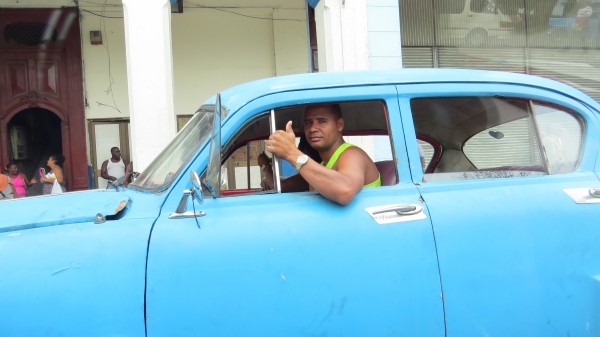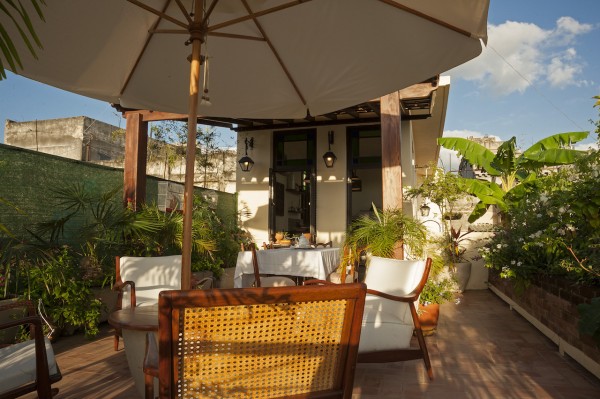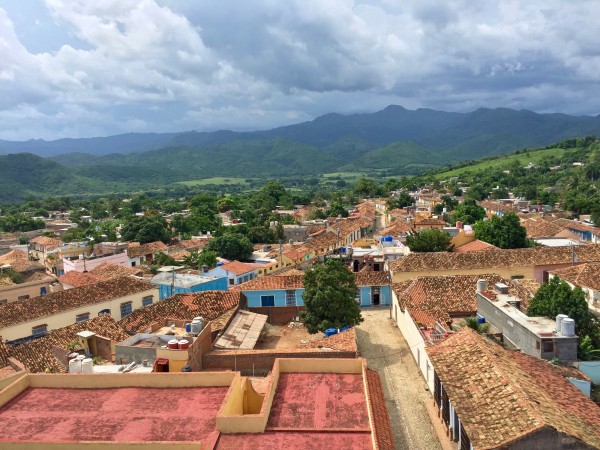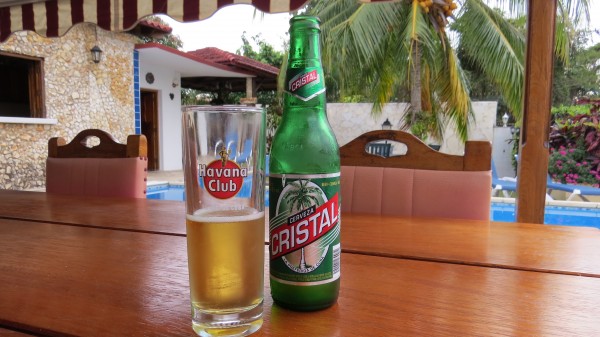Updated: Answers to 10 Frequently Asked Cuba QuestionsOur Magazine
We wrote about this topic back in September 2016, but given the huge interest in and dynamic nature of Cuba travel, we thought we’d share an updated post answering the 10 most common questions our clients have when starting to plan a trip!
Of course, our clients are a well-traveled and naturally curious bunch, so we have no doubt this won’t cover every question – feel free to reach out to us with other questions and to start planning a trip. We have some great sample itineraries for inspiration, but every trip is 100% customized.
#1 – Who exactly can travel to Cuba from the U.S.?
Traditional tourism to Cuba is still not legal for U.S. citizens and permanent residents. However, some travel is permitted if it falls within one of 12 general licenses authorized by the U.S. Department of Treasury. Among these are “people to people exchanges,”, which we specialize in organizing on a custom, private basis.
#2 – Why are people to people exchanges the best way to visit Cuba from the U.S.?
With our private people to people journeys, you get a full program of enjoyable and interesting exchanges that are tailored to your family or group and meet the legal requirements. And because it’s private and customized, you get much greater control over what you do each day and what time you dine, rather than be led around in a big tour group on a rigid schedule. With a private trip, you get to more fully experience and enjoy Cuba in a moment of historic change. Once your full day of activities is complete, your evenings are yours to plan – a quiet dinner in a paladar, a run on the malecón, or hit up a live music venue!

#3 – So I can’t have just a beach vacation in Cuba yet?
No, not yet under U.S. laws, but Cuba is so much more than its beaches. What you CAN have is a fascinating, compelling exchange with everyday Cubans to experience and enjoy the country in another moment of historic change. Visit the studio of a emerging young artist…meet a local farmer working to revolutionize food production in Cuba…go for a long hike with an expert nature guide….hit a couple markets with a local chef before preparing a traditional lunch together…there are countless options that can be arranged, in accordance with your specific interests.

#4 – What if I just book flights and figure the rest out when I get there?
Given the huge demand for high-end accommodations and services, paired with the slow and limited internet and exorbitant cost of U.S. cell roaming, Cuba is not the place to wing it…unless you want to spend your entire trip dealing with headaches! You want to arrive knowing all the important details of your trip have been taken care of for you by experts like Exeter Latin America, with firsthand knowledge and on-the-ground connections.
Furthermore, U.S. regulations require anyone doing a people to people trip to keep documentation of their full exchange program for up to 5 years. So, an expert planner like Exeter Latin America both handles all the legwork for you and gives you all the documentation you need, allowing you to focus on enjoying yourselves.
#5 – What type of accommodations can we expect?
We specialize in upscale travel, so we are very picky in Cuba! There are a couple higher-end hotel options in Havana we would consider 4*, and the first 5* hotel – Kemspinki La Manzana – opens at the end of May 2017. (Update 5/25/17: See our sneak peak of the new Kempinski from our March trip.). In other large cities you can find very comfortable 3* hotels like the Iberostar Grand in Trinidad or the newly-renovated Hotel Imperial in Santiago.
However, we often think the best value for small groups and families is our collection of hand-picked, private villas and apartments (casas particulares). They often offer personalized service, tastier breakfasts, and greater flexibility, as well as of course private bathrooms and air conditioning. We can rent out an entire place for your group, or for a single couple looking to spend a bit less we can just rent out a bedroom in one of our favorite casas.

#6 – Do travelers from the U.S. need a visa or anything else?
To enter Cuba, you’ll need a Cuban visa or “tourist card,” and U.S. airlines provide instructions on purchase when selling flights to Cuba. Each airline handles it a bit differently, so you’ll want to read carefully the instructions they provide on their websites. In addition to the visa, and more importantly, each traveler is responsible for self-certifying to the airlines and most travel companies which legal category applies to your Cuba trip. Booking a people to people exchange with a trusted planner like Exeter Latin America ensures you have all the required support and documentation as you plan your trip.
#7 – How much time do we need?
Cuba is a huge island and it can take over 2 weeks to see it all, so it’s important to decide what is most important to you and how much time you have. For those with only a weekend of 3-4 nights, Havana is the most popular option – although those who’ve already seen Havana can pop down to Trinidad or Santiago. With a full week, we can easily help you explore Havana as well as the lush Viñales Valley, heart of the tobacco region, and colonial Trinidad. To add in destinations in the east, you deftly need more time; domestic flights can be unreliable, so we usually recommend travel by land. Remember that Cuba is close to the U.S., and you will surely want to go back to explore whatever you don’t cover during the first visit.

#8 – Can we pay with credit cards and use ATMs now?
Cash is still king in Cuba, as almost no U.S. bank cards are accepted and indeed manybusinesses don’t accept cards even from other countries. ATMs are also unreliable and there can be long lines. Cuba has a dual currency system and you would exchange your U.S. dollars into Convertible Cuban Pesos (CUC), unless you bring British pounds or Euros which incur much lower exchange fees.

#9 – How do we get our flights to Cuba?
First, given the demand in Cuba, we always recommend that our clients lock in the best possible accommodations first – the air is usually the easy part. U.S. carriers are now operating 20 daily nonstop flights to Havana, as well as weekly (or more) service to other key cities from U.S. gateways such as Miami, Ft. Lauderdale and New York. (Havana flights depart from other major U.S. cities including Atlanta, Charlotte and Los Angeles). Air tickets also typically include the mandatory Cuban health insurance.
#10 – When is the best time to travel to Cuba?
November-April offers the best weather overall, with milder temperatures and less rain. As you would imagine, these months thus are high season so it’s essential to plan ahead. No matter when you go, we always recommend you start planning at least 2-3 months in advance to have the best options.
Ready to start planning your custom, private Cuba journey? Send us an email or call us today (877-333-4988).
